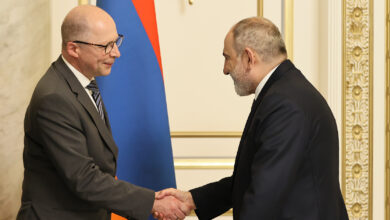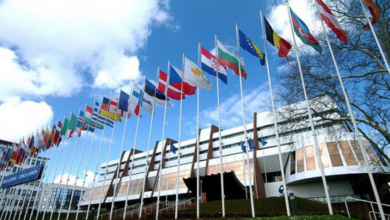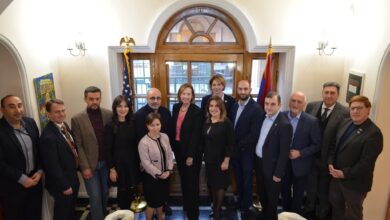U.S. Treasury Secretary urged to start tax treaty talks with Armenia

Tufenkian Artisan Carpets – a global brand long respected worldwide as a leading source of handcrafted artisan area rugs – has called upon the U.S. Department of Treasury “to begin talks with Armenia toward a long overdue and badly needed modern U.S. Tax Treaty,” reported the Armenian National Committee of America (ANCA).
In a letter to Treasury Secretary Steven Mnuchin, owner and CEO James Tufenkian, a major American investor in Armenia’s growth – through his artisanal carpets, hotels, and philanthropic work – noted that, for the past 17 years, he has been: “building great boutique hotels in the important touristic regions of Armenia to help develop those very depressed economies, and to create a broad base for tourism to the whole country. In addition in 1993 I established a very labor-intensive business hand-weaving carpets and textiles to preserve this indigenous and historic Armenian craft, and to provide work for at-risk segments of the population.” He called special attention to the “unusual prospect, in this day and age, of facing double taxation,” noting that “such a disincentive was eliminated long ago in competing nations [yet] Armenia continues to face this unnecessary barrier as it struggles to compete for investment capital to develop the country.”
The Tufenkian letter makes the case for a “clear, reliable international legal taxation framework,” underscoring to Secretary Mnuchin that “the absence of such a framework has created unnecessary uncertainty, resulting, ultimately, in the needless diversion of investment flows to the detriment of the mutually beneficial progress that we all seek in U.S.-Armenia economic relations.”
“We want to thank James Tufenkian and his entire team for their truly transformative contribution to the future of Armenia and the U.S.-Armenia partnership,” said ANCA Executive Director Aram Hamparian. “As a major U.S. investor in Armenia, he knows, firsthand, how the threat of double taxation presents a real barrier to new investments and other mutually-beneficial, job-creating opportunities.”








